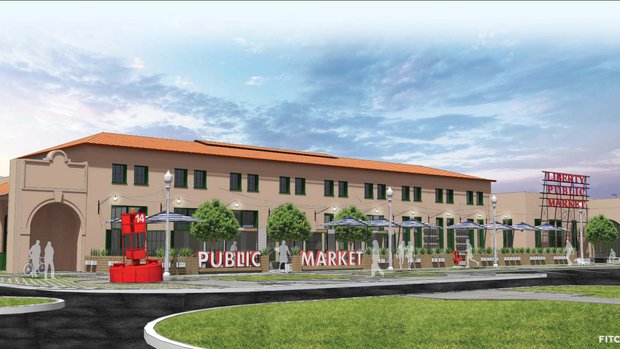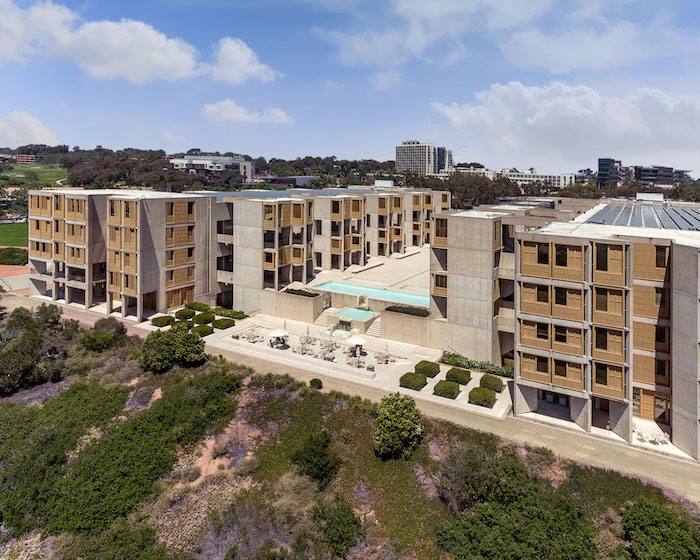Daily Business Report — Aug. 18, 2014
Artist’s rendering of the California high-speed rail.
Preliminary Construction Begins
On California High-Speed Rail
Preparatory work has begun on California’s high-speed rail network after years of legal fights and delays. But the project is facing the same skepticism and challenges as other big infrastructure ventures in the past.
Soil tests have been run, buildings have been cleared and designs are being finalized with the help of federal funding.
“We’re clearing the area,” says California High-Speed Rail Authority President Dan Richard. “A number of buildings have been demolished. There’s been soils testing and sometime in the next two months, we think the design for some of the first key bridges will be finished and that that construction will start.”
Richard says similar systems in Europe and Japan have proven to be self-sustaining. “High-speed rail systems around the world, once you build them, once the capital is spent to build them, they’re all generating positive cash flows,” Richard said.
But that capital so far has been hard to come by. The state has identified $9 billion of the $68 billion it estimates the project will cost. And congressional Republicans have vowed to block any more federal funding, saying it’s costly and unnecessary.
The project is also trying to overcome legal challenges and a skeptical public. Andy Kunz with the U.S. High Speed Rail Association says the other systems had plenty of detractors at first. “And then people focused on it and they got one little piece built and then everyone bought in at the point because they realized, oh yes this does make sense,” Kunz said.
A California appeals court recently overturned a lower court ruling that blocked the state from selling high-speed rail bonds. Those bonds could be available in the next few weeks.
— Capital Public Radio
Burnham-Moores Center Chief to Step Down
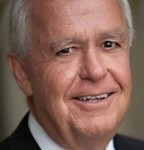
Mark J. Riedy, executive director of the Burnham-Moores Center for Real Estate at the University of San Diego, will step down in January after two decades in the post. Riedy started the real estate program in 1993.
As executive director, Riedy assembled the BMC’s team of faculty and staff, who are supported directly by more than 110 industry thought leaders serving on the center’s four policy advisory board committees.
Among their many joint accomplishments are an annual conference series attracting 700 industry executives each year, annual conferences for women in leadership and residential real estate and other programs of value to real estate professionals; a graduate Master of Science in Real Estate degree program and undergraduate majors and minors in real estate; and a popular Continuing Education certificate program for working adults.
“Programs and services developed under Riedy’s leadership consistently are of the highest quality and create terrific academic and career opportunities for USD students,” said David Pyke, dean of the School of Business Administration at USD.
Small Business Boot Camp Set for Aug. 23
SAN MARCOS — Accion San Diego, a nonprofit micro-lender offering business loans from $300 to $75,000, is hosting its Small Business Boot Camp in North County. It will be held on Aug. 23, from 8:30 a.m. to 12:30 p.m. at the San Marcos Community Center on 3 Civic Center Drive. The free workshop is for owners of start-up ventures and growing businesses and will feature an extensive resource center consisting of more than 10 local community partners, networking opportunities and two specialized programs led by a team of small business experts. The Start-Up Program will be for new and aspiring business owners and the Growth Program will be for seasoned business owners.
The boot camp is hosted by Accion San Diego, with the support of the Leichtag Foundation and, in collaboration with the Business and Entrepreneurship Center, the city of San Marcos, the Housing Opportunities Collaborative, the San Diego County Library and SBDC of North County.
Affordable Housing Project Set for Lincoln Park
A first-of-its-kind development to provide affordable rental housing in the city of San Diego specifically for families with a member who has a developmental disability is coming to the Lincoln Park neighborhood of San Diego.
Independence Point, a $13.5 million development for low- and very low-income families by Chelsea Investment Corp., is being built with $8 million in bond financing approved by the San Diego City Council at the recommendation of the San Diego Housing Commission with additional financial assistance provided by the commission.
Located on South Willie James Jones Avenue, Independence Point will feature 29 three- and four-bedroom apartments and three fully accessible three-bedroom flats. Twenty-five units will be set aside for households with at least one member who has a developmental disability, a term that includes intellectual disabilities, cerebral palsy, epilepsy and autism. One unit will be for an on-site manager.
The units will be provided to households with incomes as low as $23,000 a year.
Otonomy Completes $100 Million IPO
Another San Diego biotech has gone public. Sorrento Valley-based Otonomy, which creates pharmaceuticals to treat ear diseases, has completed a $100 million IPO. The origins of the company illustrate the collaboration which fuels many San Diego biotechs: Jay Lichter, a partner with the La Jolla venture capital fund Avalon Ventures, teamed up with the doctor who treated him for an ear issue, UC San Diego’s Jeffrey Harris. Otonomy, established in 2008, was the result of their initial collaboration.
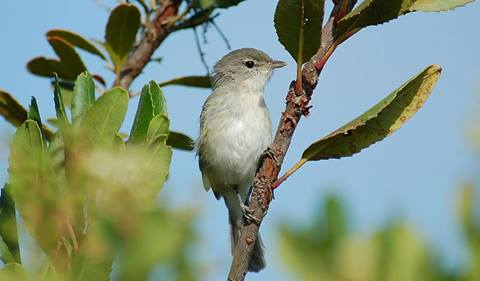
San Diego Wildlife Refuge Gets $1Million
In Federal Funds for Outreach to Youth
Teaching youth in urban communities about outdoor conservation is the goal of a new federal initiative. The U.S. Secretary of the Interior visited San Diego last week to talk about the $1 million in funding the San Diego National Wildlife Refuge Complex will be receiving as part of the initiative by the U.S. Department of the Interior.
San Diego’s wildlife complex is the nation’s first urban refuge to be awarded outreach funding through a nationwide competition.
The refuge complex covers 16,000 acres from San Diego to the South Bay and Tijuana slough. Visitors to the complex can learn about what plants, animals and birds are found along the shore.
Interior Secretary Sally Jewell says the goal for the initiative is to get 10 million kids from underserved communities to embrace conservation and outdoor activities. “From teaching urban youth about the magnificence of the California condor to unlocking opportunities to explore nature along the Los Angeles River, the San Diego National Wildlife Refuge Complex is a model of how we can leverage innovative partnerships to connect new and diverse audiences to the great outdoors,” Jewell said.
— City News Service
Scripps Christens Research Vessel R/V Sally Ride
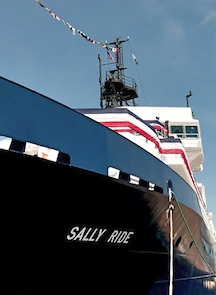
The U.S. Navy and Scripps Institution of Oceanography christened the first U.S. research vessel named for a woman on Aug. 9 as a crowd of more than 150 dignitaries formally welcomed the $89 million R/V Sally Ride dockside at the Anacortes, Wash., shipyard where the vessel is being constructed.
Tam O’Shaughnessy, companion of the late Sally Ride, who made history in 1983 when she became the first American female astronaut to travel to space, made the ship’s launch into the ocean official with a crack of a sparkling wine bottle on its hull and vote of confidence that the vessel will go on to do great things in the spirit of its namesake.
“Scripps will be answering some of the most compelling problems of our time,” said O’Shaughnessy, with R/V Sally Ride, which she noted is a “very smart ship” with advanced environmentally friendly features that means it is “not contributing to the kinds of problems Scripps is trying to solve.”
Ride was selected for NASA’s astronaut corps in 1978. She flew aboard Space Shuttle Challenger in 1983. In 1989, she joined the faculty of UC San Diego as a professor of physics and was director of the university’s California Space Institute. She died in July 2012 at the age of 61 of pancreatic cancer.
Katherine Hoffman Joins Solomon Ward Law Firm
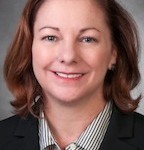
Katherine M. Hoffman, a resident of Mission Hills, has joined the firm of Solomon Ward Seidenwurm in San Diego as partner. Hoffman has more than 18 years of experience in trademark prosecution, enforcement and related property law.
Hoffman’s practice focuses on domestic and international intellectual property law, encompassing protection and enforcement of trademark, copyrights, trade dress and trade secrets. She has experience in trademark prosecution and litigation before the U.S. Patent and Trademark Office, and expertise in a range of technology transactions. She counsels clients on all areas of intellectual property acquisition, licensing, protection and enforcement strategies and procedures.
Prior to joining Solomon Ward, Hoffman practiced at McKenna Long & Aldridge for two years, following her tenure as a Luce Forward LLP partner since 2005. Hoffman received her J.D. from Campbell University, Norman Adrian Wiggins School of Law and a B.S. in Biology from the University of Cincinnati.
Hoffman is a member of the International Trademark Association, as well as Athena San Diego and the San Diego County Bar Association. She has served on the Board of Directors for the San Diego Police Foundation since 2012.
Hoffman has resided in Mission Hills for more than a decade.


